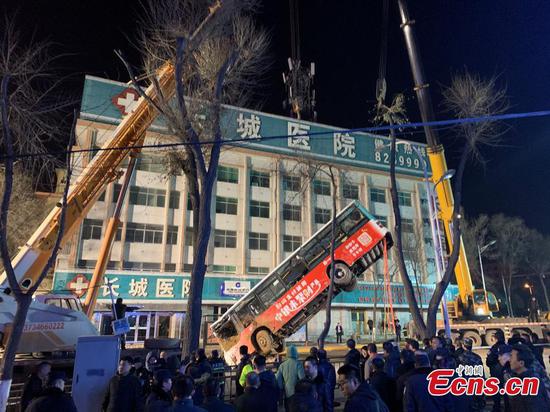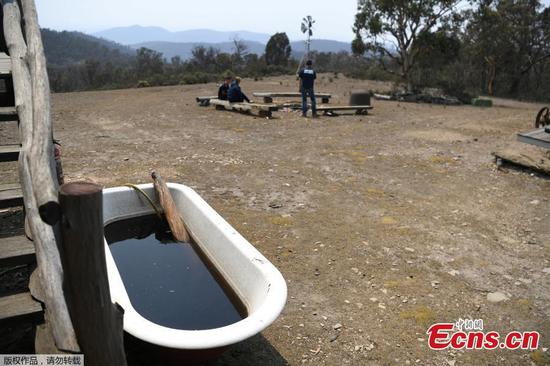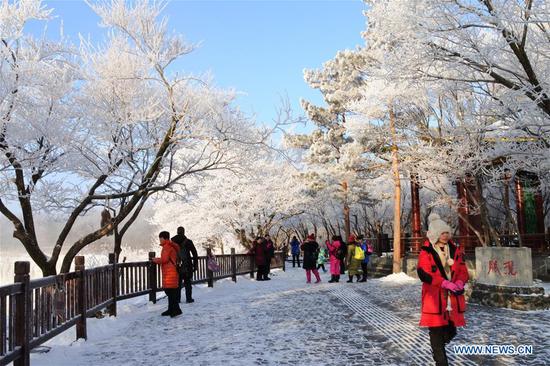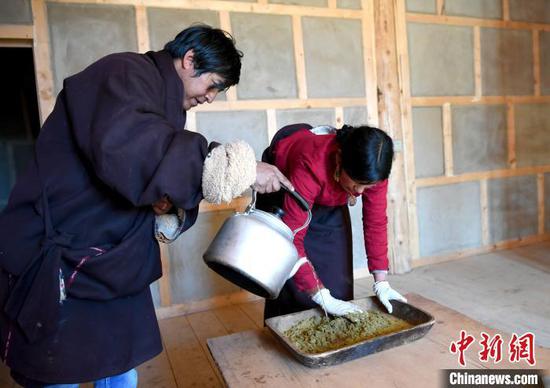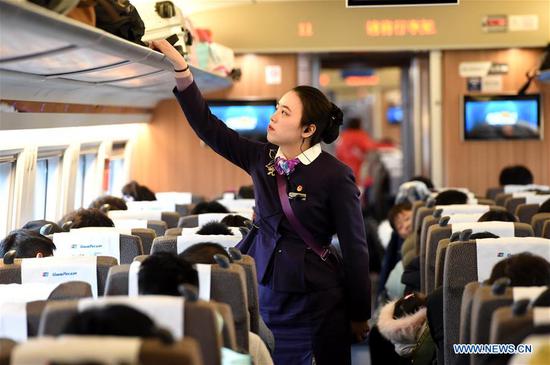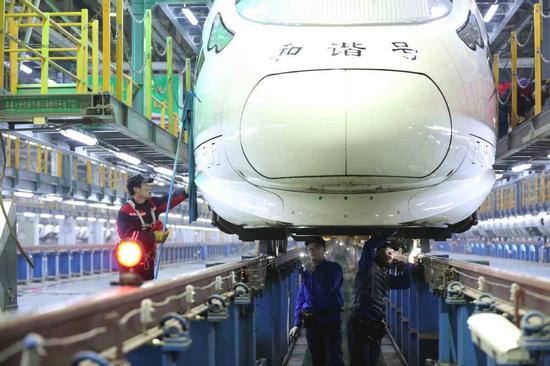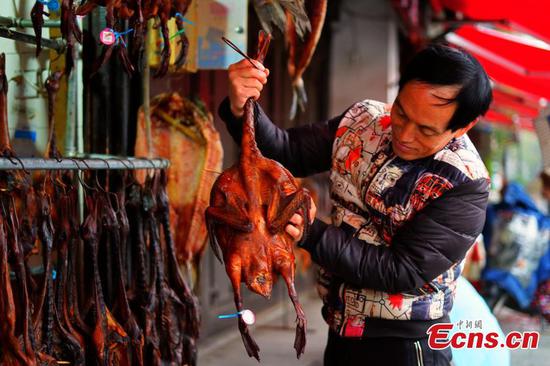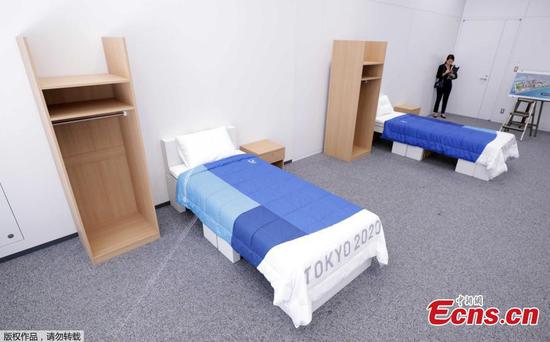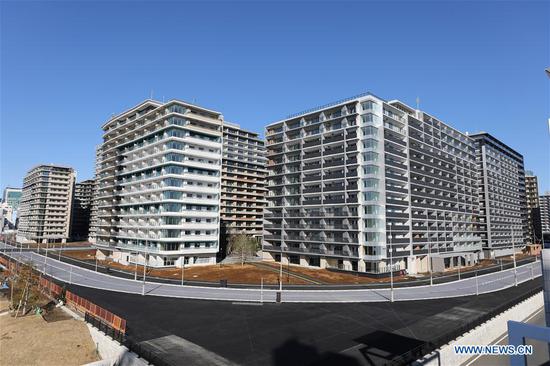
An elderly woman dines at a nursing home in Hangzhou, East China's Zhejiang Province. (Photo by Sun Yidou/For China Daily)
The top market regulator unveiled a mandatory standard for care providers on Monday, urging retirement homes to comply with fire, food safety and sanitation rules.
It also moved to ban the peddling of healthcare products at such facilities, a widespread practice that over the last year has snared many seniors in frauds involving expensive yet substandard products. Smoking will also be banned indoors, according to the rules issued by the State Administration for Market Regulation.
The new rules require operators to evaluate each individual for the risk of choking, falling from bed, taking wrong medications, getting lost and developing bedsores. Efforts should also be made to minimize the risks.
The rules will take effect in 2022, which officials say will leave time for facilities to make adjustments.
China removed the approval procedure for setting up retirement homes a year ago, only requiring such facilities to register before they are operational. The move aimed to boost investment in elder care to meet the demand from a quickly expanding older population, and to shift authorities' duty from giving approvals to day-to-day monitoring.
Tian Shihong, deputy director of the administration, said the sixth and latest national standard on elder care included the first mandatory rules in the sector.
"It differs from other recommended standards," he said at a news briefing held by the State Council Information Office in Beijing on Monday.
The new standard works as the bottom-line requirement for care providers, which all parties are obliged to follow, he added.
Gao Xiaobing, vice-minister of civil affairs, told the news conference the standard is expected to play very important roles in promoting the healthy development of the care sector, and to help bolster supervision, especially after the financial threshold for running retirement homes was removed.
She said the standard, together with other rules, will work as a major basis for day-to-day monitoring and a guarantee of seniors' interests.
China has been working to bolster the supply of care services in light of a rapidly aging population.
Last year, the central government required local authorities to put at least 55 percent of central government-allotted money from welfare lottery revenue into fostering elder care, up from an average of around 50 percent in the past few years.
It also ordered further cuts in taxes and other administrative fees for retirement homes.
The Ministry of Civil Affairs pledged last year to train 10,000 facility directors and 2 million attendants over a three-year period starting last year.
China has seen several fatal retirement home fires over the last few years, raising concerns about their management.
One of the most disastrous was a nighttime fire in 2015, which killed 39 and injured six at a retirement home in Lushan county, Henan province.











